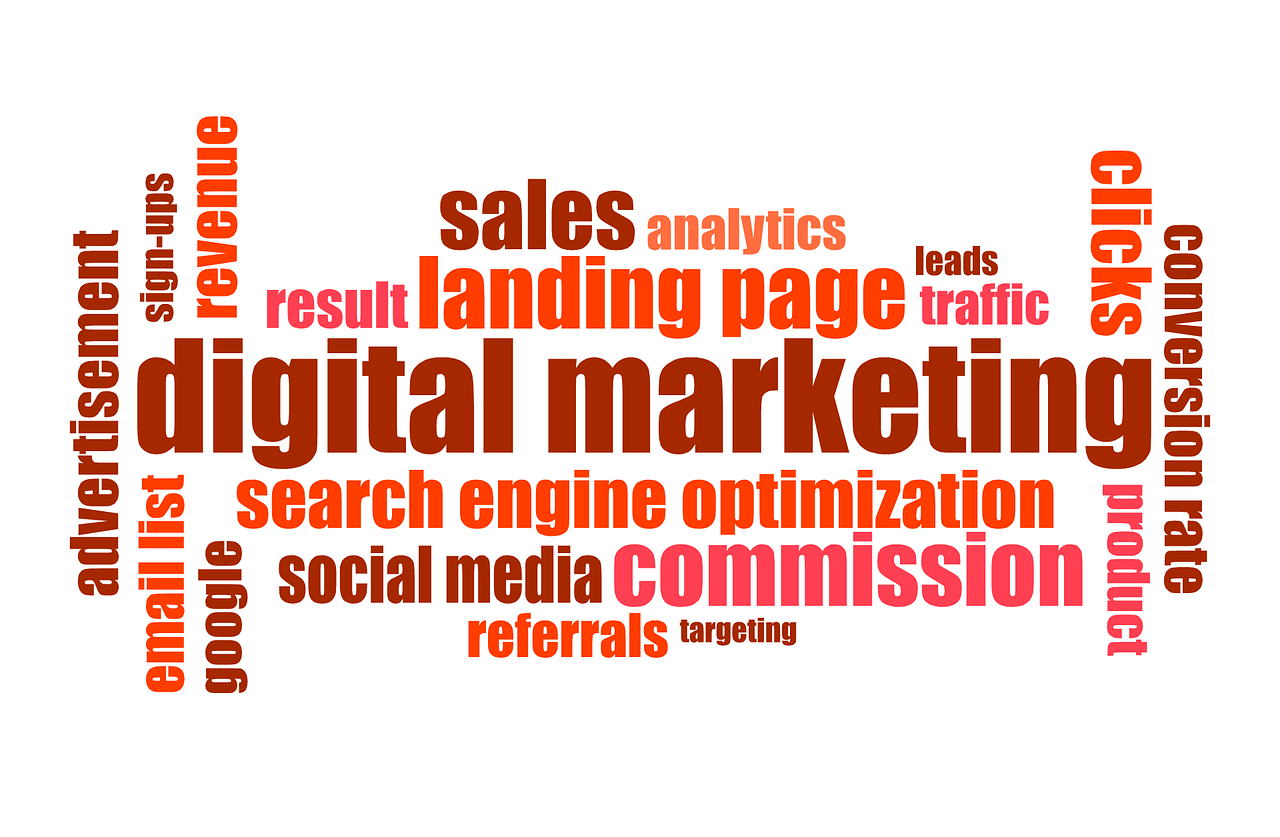
In today’s business world, digital marketing has changed the way all businesses interact with their customers. For small businesses, it’s a game changer. Gone are the days , when only big companies with big budgets could reach a large audience. Now with the right strategy and focus any small business can build a brand, generate leads, and drive sales online.
Introduction to the P.A.S. Framework
In this article, we will explore the P.A.S. (Problem, Agitation, Solution) copywriting framework to highlight the importance of digital marketing for small businesses. This organized method allows us to identify businesses’ main challenges, the repercussions of ignoring these issues, and how digital marketing can offer a customized solution.
The Struggles of Small Businesses in Today’s Marketplace
1. Limited Marketing Budgets
In today’s world, small businesses are always looking for ways to grow and succeed in a highly competitive environment. Traditional advertising can be costly and often fails to connect with the right audience. This is where digital marketing becomes a crucial asset for small businesses. It provides cost-effective, data-driven, and targeted solutions that can yield quick results. Today, we will explore the clear advantages of digital marketing for small businesses through a practical and actionable lens—focusing on realistic, fact-based strategies rather than hype.
2. Difficulty Reaching Target Audiences
Difficulty Reaching Target Audiences In traditional marketing, it can be challenging to target specific customer segments effectively. A local TV or radio advertisement may reach a broad audience, but how many of those viewers or listeners are truly interested in what your business provides? Without accurate targeting, small businesses often end up spending money on campaigns that are viewed by individuals who are unlikely to become customers.
3. Lack of Measurable Results
One major downside of traditional marketing is the difficulty in measuring results. How can you tell if that costly billboard attracted any new customers? Or if your radio ad generated leads? Small businesses, in particular, need to account for every dollar spent on marketing. Without solid data, it’s challenging to determine what strategies are effective and which ones aren’t.
Agitation: The Consequences of Ignoring Digital Marketing
1. Missed Opportunities to Compete
Ignoring digital marketing means small businesses miss out on opportunities to compete on a level playing field. While big companies have big marketing budgets, digital platforms like Google and Facebook allow even the smallest business to target specific customers at a fraction of the cost.
For example, Google’s Economic Impact Report indicates that businesses earn an average of $2 in revenue for every $1 invested in Google Ads. If your competitors are utilizing digital marketing and you’re not, you could be missing out on significant revenue. Additionally, you risk allowing other businesses to connect with your customers through online avenues.
2. Invisibility to Modern Consumers
With 63.1% of the global population using the internet, it’s clear that online is where people are. Small businesses that fail to maintain a strong online presence may find themselves becoming invisible to the modern consumer. In 2023, over 60% of consumers researched products online before making a purchase, even if they eventually bought from a brick-and-mortar store. If your business isn’t appearing in these online searches, you’re losing potential customers to more digitally savvy competitors
3. Lack of Control Over Your Business’s Narrative
In today’s digital landscape, consumers frequently develop opinions about a business based on its online presence. Without a solid digital marketing strategy, small businesses may lose control over their narrative. For instance, if a small restaurant fails to promote its positive reviews or respond to negative feedback online, it could unintentionally let a few unfavorable reviews influence public perception. Effective digital marketing enables businesses to craft their brand image and respond to customer feedback in a timely manner.
Solution: How Digital Marketing Can Help Small Businesses Overcome These Challenges
Now that we’ve highlighted the issues and possible outcomes, let’s explore how digital marketing can address these challenges for small businesses.
1. Cost-Effective Marketing
One of the main benefits of digital marketing is its affordability, making it a viable option for small businesses with tight budgets. Unlike traditional marketing, which often requires thousands of dollars for a single campaign, digital marketing provides more flexibility in spending. For instance, businesses can start a Facebook ad campaign for as little as $5 a day and adjust their budget as needed. A study by HubSpot found that inbound marketing—which encompasses digital marketing strategies like SEO, social media marketing, and content marketing—costs 62% less per lead compared to traditional outbound marketing methods, such as print ads or direct mail. This cost-effectiveness enables small businesses to achieve better results without overspending.
2. Targeted Advertising
Digital marketing provides targeting capabilities that traditional marketing can’t compete with. On platforms such as Google Ads or Facebook Ads, you can reach potential customers based on their demographics, location, interests, behaviors, and even their past interactions with your business. This ensures that your marketing budget is effectively spent on those most likely to make a purchase. For example, if you own a local bakery, you can utilize Facebook ads to reach individuals within a 10-mile radius who have recently shown interest in baking or cakes. This approach allows you to connect with people who are not only interested in your products but also close enough to visit your bakery.
3. Measurable Results
Digital marketing stands out from traditional marketing because it offers clear, real-time insights into how well your campaigns are performing. With tools such as Google Analytics, businesses can easily track website traffic, identify the sources of their visitors, and see how many of those visitors are turning into leads or making purchases. For instance, if you launch an email marketing campaign to promote a new product, you can monitor the number of recipients who opened the email, clicked on the link, and ultimately made a purchase. This level of visibility enables businesses to adjust their marketing strategies based on what is effective, ensuring that every dollar spent is used to achieve the best possible return on investment (ROI).
4. Enhanced Customer Engagement
Digital marketing enables small businesses to connect with customers in ways that traditional marketing could never achieve. By utilizing social media platforms, businesses can address customer questions, provide updates, and cultivate relationships. This kind of engagement is crucial for building customer loyalty, which is vital for sustained success. For example, brands that promptly reply to customer inquiries on social media sites like Twitter or Instagram tend to keep those customers. Studies indicate that 71% of consumers who enjoy a positive interaction with a business on social media are inclined to recommend that brand to others
5. Improved Local SEO
For small businesses that depend on local customers, digital marketing provides a significant edge through local SEO (Search Engine Optimization). By tailoring your website and content to local search terms, small businesses can make sure they appear when individuals in their area look for products or services they provide. For example, if you operate a plumbing business in Austin, Texas, optimizing your website for phrases like “plumber in Austin” or “emergency plumbing Austin” will boost your chances of showing up in search results when someone nearby needs plumbing assistance. Google reports that 46% of all searches have local intent, indicating that businesses that focus on local SEO are more likely to be found in those searches, ultimately driving traffic and customers to their location.
6. Building Trust Through Online Reviews
Online reviews play a vital role for small businesses. Research from BrightLocal shows that 87% of consumers check online reviews for local businesses, and 79% trust these reviews as much as personal recommendations. A well-executed digital marketing strategy can motivate happy customers to share positive feedback, enhancing the business’s credibility. Take, for instance, a local coffee shop that actively encourages customers to post reviews on platforms like Google or Yelp. This approach can help create a robust collection of testimonials that draw in more visitors. Additionally, digital marketing tools enable businesses to respond to negative reviews and quickly address customer issues, potentially transforming a negative experience into a positive one.
7. Scalability
One of the key advantages of digital marketing is its scalability. Small businesses can kick off with a limited budget and gradually ramp up their spending as they start to see positive results. As your business expands, your marketing strategies can evolve alongside it. For example, a small clothing boutique might launch a modest Instagram ad campaign. As they notice a rise in traffic and sales, they can branch out into Google Ads or even consider investing in influencer marketing. The great thing about digital marketing is that it can be adjusted to fit your business’s requirements, whether that means scaling up or down.
Conclusion
In today’s digital age, small businesses must recognize the importance of digital marketing. Whether utilizing social media, search engine optimization, or paid ads, digital marketing provides a variety of cost-effective, targeted, and measurable solutions to the challenges small businesses encounter. It helps them compete with larger firms and connect with local customers, offering essential tools and strategies for growth. Small businesses that adopt digital marketing are more likely to succeed in the current market. It’s not just an option anymore—it’s essential. With the capability to interact with customers directly, monitor results in real-time, and adjust efforts as the business expands, digital marketing presents a straightforward and effective answer to many of the obstacles small businesses face today


